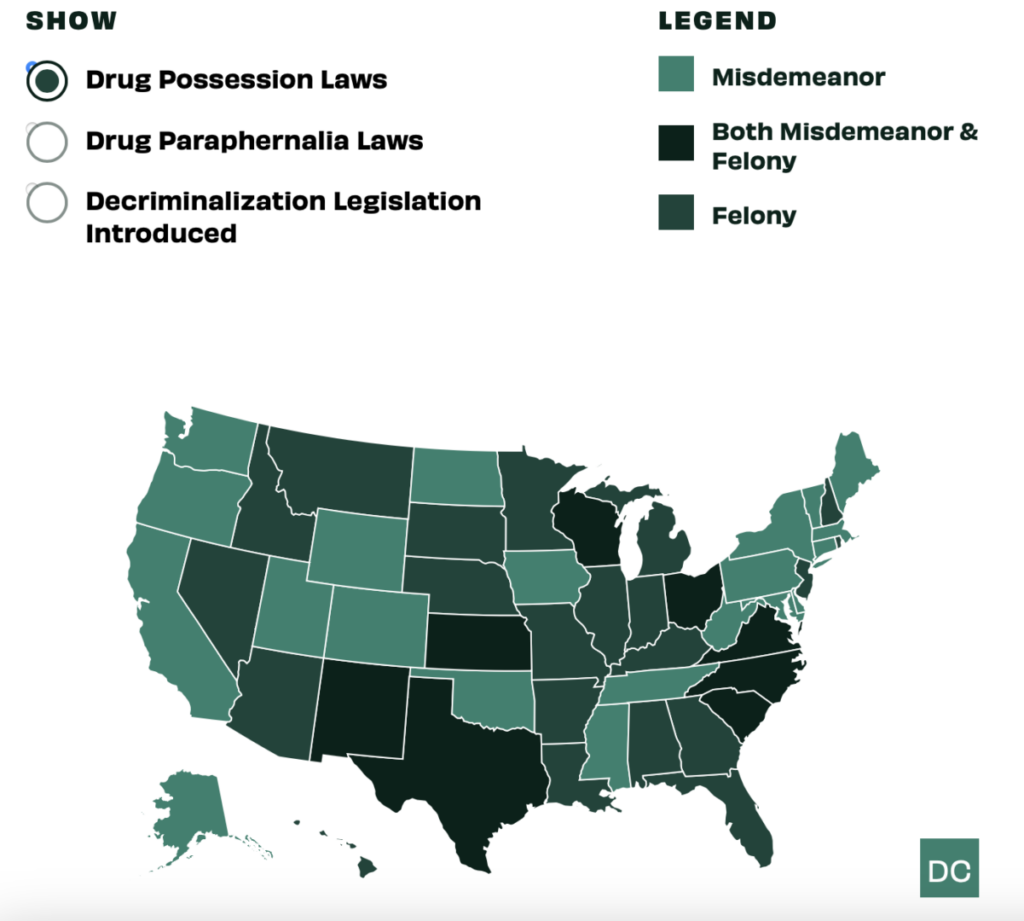The Drug Policy Alliance (DPA) has unveiled a comprehensive draft of an executive order aimed at transforming federal cannabis policy through an equity-driven and public health-focused lens.
Announced in Washington, D.C., the proposal outlines steps for Donald Trump’s upcoming presidency to leverage executive authority to address the lasting impacts of cannabis criminalization, particularly on Black, Latine, and Indigenous communities.
This push for cannabis reform comes alongside a letter published Tuesday, in which 14 Democratic lawmakers urge President Joe Biden to expand his cannabis pardons and deprioritize federal cannabis prosecutions before the end of his term.
A Framework For Action
The proposed executive order provides a detailed roadmap for immediate action, emphasizing fairness and public health as central tenets.
According to Cat Packer, director of drug markets and legal regulation at DPA, the document "offers a framework for future administrations to leverage executive authority to advance federal marijuana policies that are fair."
The initiative includes the following actionable measures:
- Creation of a National Advisory Council: This body would prioritize equity and public health in federal marijuana policy while developing strategies to repair harms caused by past criminalization efforts.
- Policy Assessments: Federal cannabis regulations would undergo rigorous evaluation to identify barriers faced by underserved communities, with tailored solutions proposed to dismantle these obstacles.
- Equity Action Plans: These plans would focus on ensuring that reform efforts specifically benefit communities disproportionately affected by criminalization.
- Agency Directives: Federal agencies would be tasked with implementing immediate steps to reduce the ongoing harms of marijuana criminalization while advancing equity and public health goals.
Get Benzinga’s exclusive analysis and the top news about the cannabis industry and markets daily in your inbox for free. Subscribe to our newsletter here. If you’re serious about the business, you can’t afford to miss out.
Political And Public Health Implications
Congresswoman Barbara Lee (CA), co-chair of the congressional cannabis caucus, said:
"For far too long, our federal cannabis policies have been rooted in discrimination and have inflicted harm on communities of color. Today, the Biden administration has the unique ability to lead on criminal justice reform and provide immediate relief to thousands of people across our country."
Senator Elizabeth Warren (MA) added, "As long as marijuana is a Schedule I controlled substance, federal marijuana law will continue to have devastating consequences — particularly for communities most harmed by the War on Drugs. President Biden took the important step to reschedule marijuana, but that doesn't have to be the end of the administration's work to reform our system and right these wrongs."
Senator Ron Wyden (OR) echoed these sentiments, emphasizing the need for sustained action: "Ultimately, Congress needs to act to end marijuana criminalization and regulate it at the federal level. After moving to reschedule marijuana earlier this year, President Biden has a critical opportunity to take additional actions in the final stretch of his presidency that would mitigate the harms of the failed War on Drugs and set future administrations up for a productive approach to marijuana reform."
Lee, Warren, and Wyden signed the mentioned letter asking for pardons for cannabis prisoners.
Broader Goals
The DPA's proposal highlights the urgency of reforming cannabis policies to ensure they benefit individuals and communities rather than corporate interests.
"This executive order is a model for how administrations can use their authority to transform federal marijuana policies to improve the lives of everyday people," said Packer.
Curious readers and cannabis advocates might find the draft executive order on the DPA website.
COVER: Drug Criminalization Map By DPA
© 2024 Benzinga.com. Benzinga does not provide investment advice. All rights reserved.








